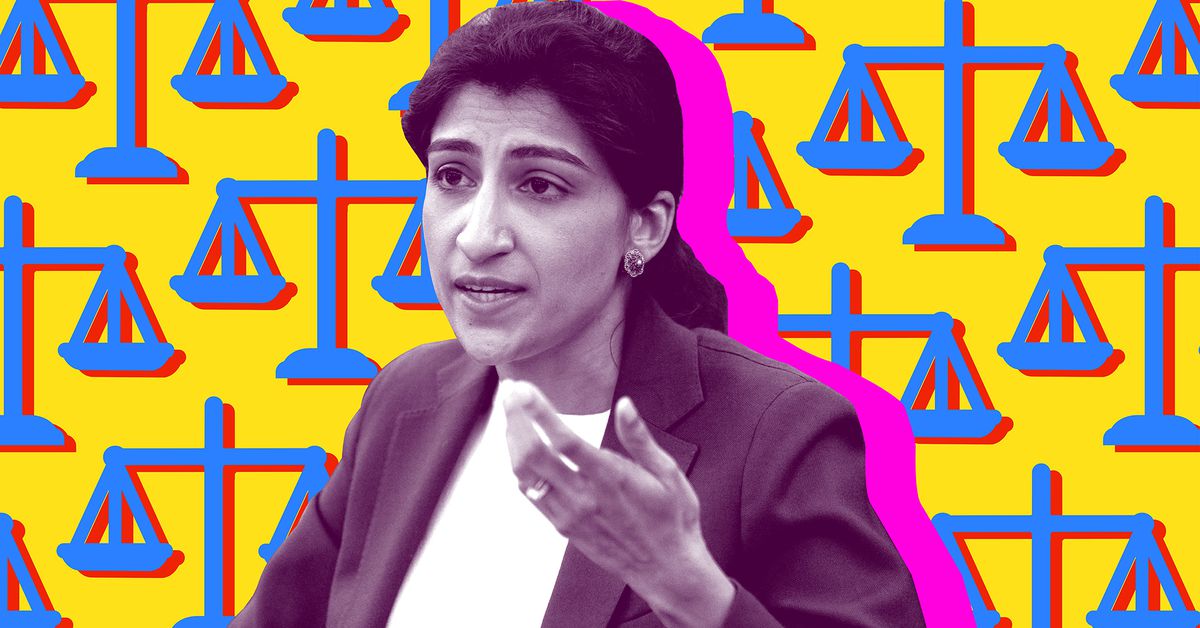FTC lays out new rule that could end hidden fees | The agency is proposing a new rule that could require businesses, from hotels to ticket sellers, to provide clear disclosures on costs and whether…::The US Federal Trade Commission is proposing a new rule known as the Trade Regulation Rule on Unfair or Deceptive Fees that it hopes will stop businesses from charging consumers hidden fees.
Hey FTC: let’s have the govt set the example here and include sales tax in this rule. It is also a bullshit hidden fee, and there’s no reason we shouldn’t include it in the sticker price. You already require it to be included for gasoline, so why only gasoline?
Especially with hotels where there are 3 different taxes for $10s on the room.
so why only gasoline?
Oil lobby
Why would the oil lobby want tax to be included gasoline? The added transparency only raises the sticker price which reduces sales.
The added transparency only increases sales because people will buy cars knowing that listed price is what they are going to pay for gasoline.
It seems quite the stretch to think people would buy more cars because tax is included in the price of gasoline. Please provide some data that substantiates your theory.
It seems quite the stretch to think people would buy more cars because tax is included in the price of gasoline.
In what shop would you go? In one that charges listed price or one that charges more?
Most people would go to the one with the cheaper posted price but with hidden fees than the one with the more expensive all inclusive price. Market data shows this tactic works, and the fact of the matter is that people are consistently fooled into paying higher prices because of hidden fees.
Why else would most companies consistently hide fees rather than be transparent unless it positively affects their bottom line?
Incoming $10 hidden fee disclosure fee
Hopefully this will include groceries. I hate when I go to buy something and it says $9.99 and I get up to the register and they hit me with this stupid, obnoxious hidden fee!
I only have a $10 bill, it says it costs less then $10. Why is it not false advertising to have it say $9.99 when it costs $12.37 at the register?
The whole thing is a scam.
I heard someone say they don’t like coming to America because it feels like everything is trying to scam you at once and honestly yeah
at least in the US pricing is somewhat consistent. Sticker price + local tax, which isn’t going to change shop to shop, just state to state or within city limits. If you go to China or the Middle East the “sticker price” is bogus and you’re expected to haggle with the merchant in many places.
True, haggle culture and the lack of it both have their pros and cons. Can’t really tell Walmart about an unexpected expense that came up and have them feel sympathy to lower the price lol. But also haggling for everything must be tiring. It’s also tiring feeling like I have no power over prices though, so yeah, pros and cons.
As someone with social anxiety, haggling for a better price is my worst social nightmare. It would only benefit those with a large mouth even though the sales employee is objected with selling the highest price. Better go for competitive pricing that atleast is fair for both parties.
That would be different. That would be an advertised price with their membership card that has built in coupons. With sales tax on top. Those aren’t technically hidden fees, and wouldn’t be effected by this.
Doubtful. Sales tax code is far more complex.
Meh, we computers that can do the math, and the labels are all printed. There is no reason why the labels can’t be sales tax included these days. I understand it is harder when running commercials or billboards, but in store there is no excuse.
Online you’d need to input your address before ever seeing pricing which I personally don’t care for. In-store would be easier from that perspective but there are so many exemptions and jurisdictions it would take a ton of work to switch over. Some tax code would have to be rewritten. Possible, but far more work than what the FTC is currently talking about.
An example of one of these complexities. In 13 states, sales tax is collected on a Milkyway but not a Twix.
The webside can just list prices with the highest tax rate in their database, absent a location. No one will ever complain about a price decrease when they go to check out.
Until you’re trying to use a $10 off $50 coupon. This is constantly a problem at groceries stores. Multiple coupons, instant savings, and bonus points. You need a damn spreadsheet to make sure you meet each criteria.
The register can figure that out, why can’t the label maker?
It’s not an issue of can or can’t, it’s an issue of the consumer not knowing why a Milky Way is $1.07 vs a Twix at $1.00. On the receipt they can see one is taxed and the other is not.
Does that matter to the consumer? Shouldn’t they know that a Milky Way cost 7 cents more than a Twix when picking their candy?
Shouldn’t they know why? Does it just cost more or is it because the government is doing it?
No one’s saying you don’t show the tax on the receipt. It’s not like no one has figured it out yet.
The EU requires tax to be included in prices displayed to customers, and each country has their own specific country regional and local tax codes. They manage just fine, so can the US.
The VAT rate doesn’t change inside each country does it? The US doesn’t have VAT, and the federal government doesn’t have sales or use tax.
Because it was designed that way. In other countries its far more simple to implement.
Right, but you’re talking about potentially changing how 13,000 Jurisdictions structure their taxes. Not an easy under taking.
This is the best summary I could come up with:
The US Federal Trade Commission (FTC) is proposing a new rule that it hopes will put an end to hidden junk fees that some businesses often add as a surprise when consumers are checking out.
The agency is currently seeking public comment on the rule, known as the Trade Regulation Rule on Unfair or Deceptive Fees, after having already collected 12,000 comments last year from individuals, businesses, law enforcement groups, and others on how deceptive fees affect them.
FTC Chair Lina Khan said in a statement that “by hiding the total price, these junk fees make it harder for consumers to shop for the best product or service and punish businesses who are honest upfront.” FTC adds that tackling junk fees through its nearly 100-year-old legal mandate that covers “unfair and deceptive acts or practices” is not enough.
The companies agreed to present customers with upfront prices, and now this new proposed FTC rule could force other businesses in different industries, from airlines to hotels, to follow suit.
If successful, the new rule could put an end to bait-and-switch tactics, which consumers have told the FTC that they’re constantly experiencing.
There is a 60-day window to provide comment on the new rule once it’s published in the Federal Register.
The original article contains 278 words, the summary contains 209 words. Saved 25%. I’m a bot and I’m open source!
This is yet another proposal to end hidden fees that does nothing to medical billing, the single largest source of hidden fees.
Looking forward to this, my partners best friend helped pen this rule so it’s been a hot topic in the house for quite a while.
Love booking hotels and getting hot with a destination/resort fee.








